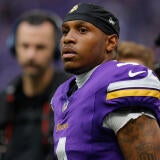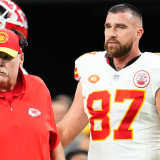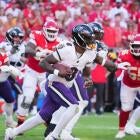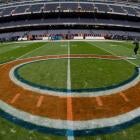Tom Brady can't wait to take the air out of Roger Goodell with a Super Bowl win
Don't be fooled by the Patriots QB's claims that he's not in it for his legacy

HOUSTON -- You won't hear Tom Brady talk about it. You can't trick Bill Belichick into offering up any insight here. But don't be fooled. Super Bowl LI, when Brady and his teammates face the Atlanta Falcons on Sunday, is the most important football game of his life.
It's not even close.
This is true on two levels. The first is revenge. The second is connected to that: Brady's legacy. And how now it must be defended against Deflategate and the way many will try to frame him after he's retired.
Let's start with the revenge. Brady has artfully dodged every question this week about Roger Goodell, the four-game suspension and how sweet it might be to force the NFL commissioner up onto a stage, with confetti falling, to congratulate the QB he punished, and tarnished, during Deflategate.
Win, and Brady beats Goodell in the only spaces he can -- on the football field. Do that, and Brady then wins in the history books, too.
Win, and Brady flips the script -- from the punishment that defined him to a championship that would redefine Deflategate itself. It transforms the whole thing from a punishment for cheating into the catalyst for unequaled greatness.
That brings us to Brady's legacy, a topic this week he has also avoided with aplomb, pretending it simply does not concern him.
"I really don't [think about it]," he said. "Because that was never the reason I played this game -- to be the best. I did it because I love football. It wasn't ever to be on some conversation about where I rank compared to someone else."
Respectfully, Tom: Hogwash.
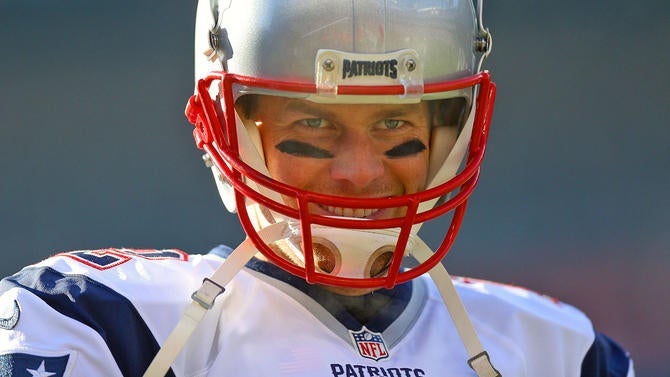
You're full of it.
Athletes who truly love and embrace the game, as Tom Brady does, love the competition. The fight for that job, for that win that week, for that spot atop the division, for that Super Bowl appearance, for that Super Bowl victory and, for the best of them, for that spot atop the all-time list: Competition is everything.
We are defined and remembered by the biggest moments that come our way, a fact doubly true for athletes like Brady with a public profile that will be defined, one way or another, long after he can control it. He know this. The legacy he leaves behind will exist and be partially shaped in the public sphere -- by media, fans, memories and the narratives that take hold. But for now he can help shape all of it on that football field. Especially on that football field here in Houston on Sunday.
Brady, to me, is already the greatest quarterback of all time. But that is not a universal opinion, and we live in an era where it is easier to tear down greats. Social media has made us more discerning -- and mean spirited -- with our judgments and praise. It has amplified our natural tendencies toward allowing allegations of ugliness or cheating to blur how athletes actually performed on the field of play. It means Deflategate silliness and losses in championship games haunt more than they help.
If the Patriots win, Brady is 5-2 in Super Bowls, has more Super Bowl wins than any quarterback ever and turned Deflategate into an Edmond Dantes-style revenge epic.
If the Patriots lose, Brady is 4-3 in Super Bowls, painted unfairly with the notion that losing three times in the big game is a blemish and remembered as someone whose Deflategate karma finally caught up to him.
Brady plays Sunday for both the immediate need to punish his punisher and the long-term goal of solidifying his place as the GOAT.
No game in his life has ever had bigger stakes or been more important -- and no game will approach this one in shaping how we remember Brady years from now.


